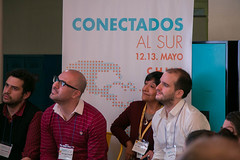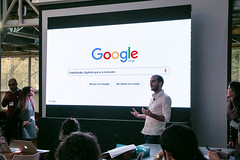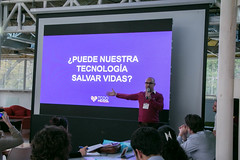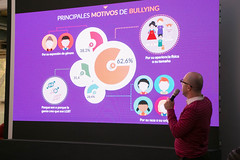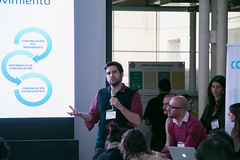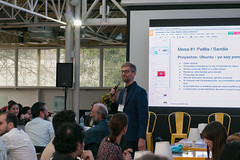Since 2010, privacy has been key topic of interest for Youth and Media. The privacy focus area has seeks to build a more nuanced understanding of youth’s conception of privacy to gauge how this conception may differ from an adult perspective, and observe how it is reflected in the kinds of activities youth engage in online.
Against this backdrop, we have created one of the largest qualitative research projects on youth issues — with a special focus on privacy and social media — on the Internet in the U.S.. As of today, we have conducted focus group interviews with more than 300 youth in US.. More interviews are planned for 2020.
Some of the questions the Youth and Media team is exploring:
- What concepts equivalent to ‘privacy’ are embedded in how youth use social media?
- What kinds of activities do youth engage in when they are online and how do they control the information they post on websites, and more specifically, on social media platforms?
- Who do youth primarily interact with when they’re online? How do youth view relationships with adults and with their peers online?
- How do youth perceive and respond to Internet restrictions their schools and/or parents might have put in place?
- How do youth perceive and respond to online ads?
- How can we foster a grounded discussion about what technologies — and which associated policies — would be most useful and appropriate, particularly in the educational context?
Relevant links and materials:
- [Book Chapter; please email one of the authors for a free copy] Plunkett L., Cortesi, S., Gasser, U. (2019). Student privacy and the law in the internet age. In K. Bowman (Eds.), The Oxford Handbook of U.S. Education Law. New York: Oxford University Press. // New types of digital technologies and new ways of using them are heavily impacting young people’s learning environments and creating intense pressure points on the “predigital” framework of student privacy. This chapter offers a high-level mapping of the federal legal landscape in the United States created by the “big three” federal privacy statutes—the Family Educational Rights and Privacy Act (FERPA), the Children’s Online Privacy Protection Act (COPPA), and the Protection of Pupil Rights Amendment (PPRA)— in the context of student privacy and the ongoing digital transformation of formal learning environments (“schools”).
- Some highlights from our 2013 focus groups.
- Module: Thinking Caps (Perspectives on Personal Information). Online personal information, especially on social media platforms, is open to interpretation. Various stories about us can emerge when personal information is evaluated from different perspectives. This module is meant to demonstrate the role of perspective in shaping the evaluation process and to emphasize reflection on the positive and negative implications of such evaluation.
- Flagship reports based on a collaboration between the Youth and Media team at the Berkman Klein Center and the Pew Research Center. The reports presents data from a nationally representative survey as well as insights and quotes from focus groups.
- Want to know how teens feel about being friends with their parents on Facebook? Watch two fun videos made by our 2012 summer interns.
- Berkman Klein’s Student Privacy Initiative site.The student privacy initiative analyzes the potential cloud computing technologies offer for schools and how educators and students can shape, improve, and expand their learning experiences with new cloud based platforms and tools.




